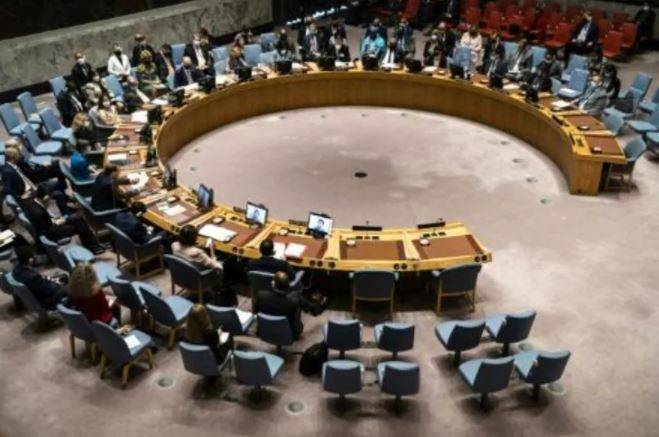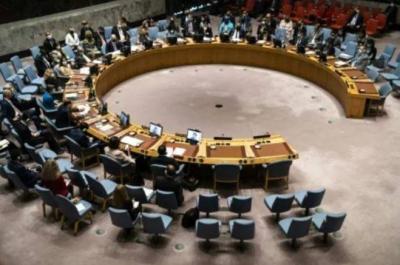The UN Security Council, in a statement issued unanimously by its members on Wednesday, called for "de-escalation" in Yemen to address the "growing threat of widespread famine" in the country. The 15 Council members emphasized the "necessity of de-escalation by all parties, including an immediate halt to the Houthi escalation in Marib Governorate," and they called for "an immediate ceasefire in Yemen."
The Council members also condemned "the recruitment and use of children, and sexual violence in the conflict," expressing their "grave concern regarding the dire humanitarian situation, including prolonged hunger and the increasing risk of widespread famine, exacerbated by the deteriorating economic conditions."
In a statement drafted by the UK, Council members urged "the Yemeni government to facilitate the regular and timely entry of fuel ships to the port of Hodeidah" located in the west of the country, affirming the "importance of ensuring that all parties allow the free flow of fuel within the country to deliver essential goods and humanitarian assistance."
The Council members recalled the "serious threat posed by the Safer tanker" and asserted that they "hold the Houthis responsible" for this situation. The Safer is a dilapidated oil tanker, manufactured 45 years ago and used as a floating storage platform, carrying approximately 1.1 million barrels of crude oil. The vessel has not undergone maintenance since 2015, leading to deterioration of its structure and condition, and it is now at risk of exploding or splitting at any moment, which would result in a spill of its cargo into the Red Sea.
The United Nations warns that an oil spill from this tanker could destroy the ecosystems in the Red Sea, impact the fishing sector in the region, and shut down the Hodeidah port, a vital lifeline for Yemen, for at least six months. The UN has repeatedly stated that the Houthis have given their preliminary approval for a UN team to inspect the tanker, but these Iran-backed rebels have consistently reverted on their decision at the last minute.
Yemen, the poorest country in the Arabian Peninsula, has been experiencing a war since 2014 between the Iran-backed Houthi rebels and the government forces supported since 2015 by a military coalition led by Saudi Arabia. The conflict has resulted in the deaths of tens of thousands of people, many of them civilians, according to various humanitarian organizations. Approximately 3.3 million people remain displaced while 24.1 million people, or more than two-thirds of the population, require assistance, according to the UN, which has repeatedly confirmed that the country is currently facing the worst humanitarian crisis in the world.




